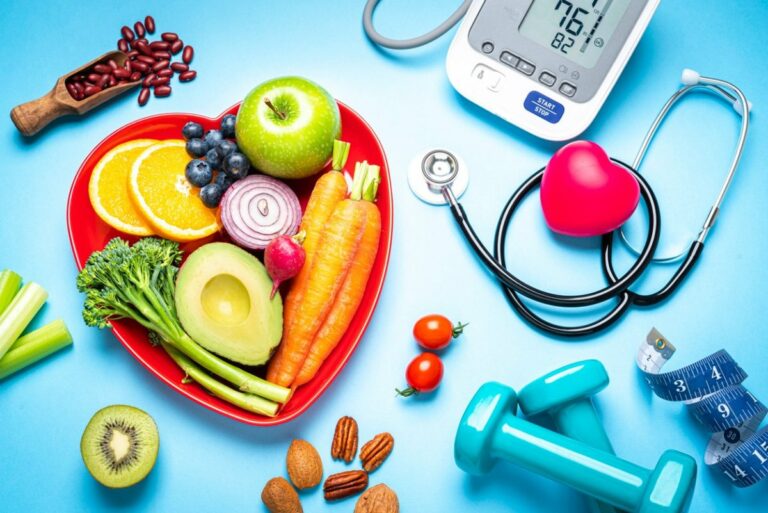Cholesterol is a waxy substance manufactured by the liver and essential for the body’s normal functioning. However, elevated low-density lipoprotein (LDL) cholesterol levels, commonly known as “bad cholesterol,” can heighten the risk of heart disease. Fortunately, through thoughtful dietary selections, you can effectively manage your LDL levels and safeguard your heart health. This article will explore the realm of LDL-lowering foods. Uncover an array of delectable and nourishing choices that can help you naturally reduce your bad cholesterol while enhancing your overall well-being. Discover essential foods and effective ways to lower your cholesterol naturally. Discover the top foods to lower cholesterol naturally.
What is cholesterol?
Cholesterol, a crucial, waxy, fat-like compound manufactured by the liver, is found in every animal cell. It plays vital roles in the body, such as forming cell membranes, generating hormones, and creating vitamin D. There exist two main types of cholesterol:
- In high concentrations, low-density lipoprotein (LDL) cholesterol, commonly called “bad cholesterol,” can heighten the likelihood of heart disease.
- High-density lipoprotein (HDL) cholesterol, or “good cholesterol,” removes LDL from the bloodstream, decreasing the risk of heart disease.
While cholesterol is essential for bodily functions, elevated levels of LDL cholesterol can lead to the buildup of plaque in the arteries, consequently increasing the risk of heart attack and stroke.
10 Foods for Lower Cholesterol:
Oats: A Heart-Healthy Superfood
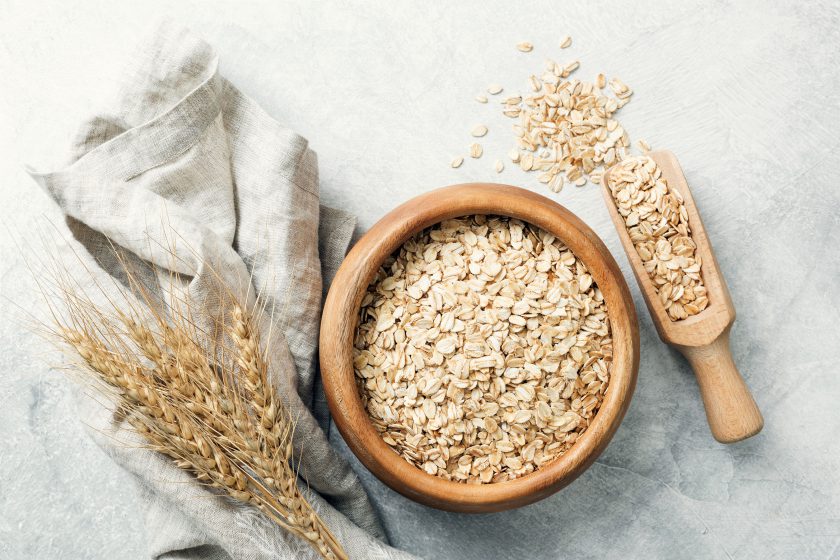
Oats are a nutritious and versatile whole grain that offer numerous health benefits, particularly for heart health.
Benefits for High Cholesterol:
Lowers LDL Cholesterol: Oats’ soluble fiber and beta-glucan reduces bad cholesterol.
Improves Blood Lipid Profiles: Oats’ fiber and antioxidants enhance overall heart health.
Reduces Cardiovascular Risk: Regular oat consumption lowers the risk of heart disease.
Additional Health Benefits:
Supports Healthy Digestion: Oats’ fiber promotes regular bowel movements.
Helps with Weight Management: Oats’ fiber and protein support satiety.
May Reduce Cancer Risk: Oats’ antioxidants and phytochemicals combat oxidative stress.
Nutritional Facts (1 cup cooked oats):
Fiber: 4g
Protein: 6g
Iron: 10% DV
Potassium: 10% DV
Beta-Glucan: 2-3g
Types of Oats:
Rolled Oats: Steamed and rolled oats are easy to cook.
Steel-Cut Oats: Less processed, chewier texture.
Instant Oats: Finely cut, quick-cooking oats.
Incorporating Oats into Your Diet:
Oatmeal: Cook oats with milk or water.
Oat Bread: Use oats in homemade bread recipes.
Oat Smoothies: Blend oats with fruits and yogurt.
Barley and Other Whole Grains: A Heart-Healthy Choice
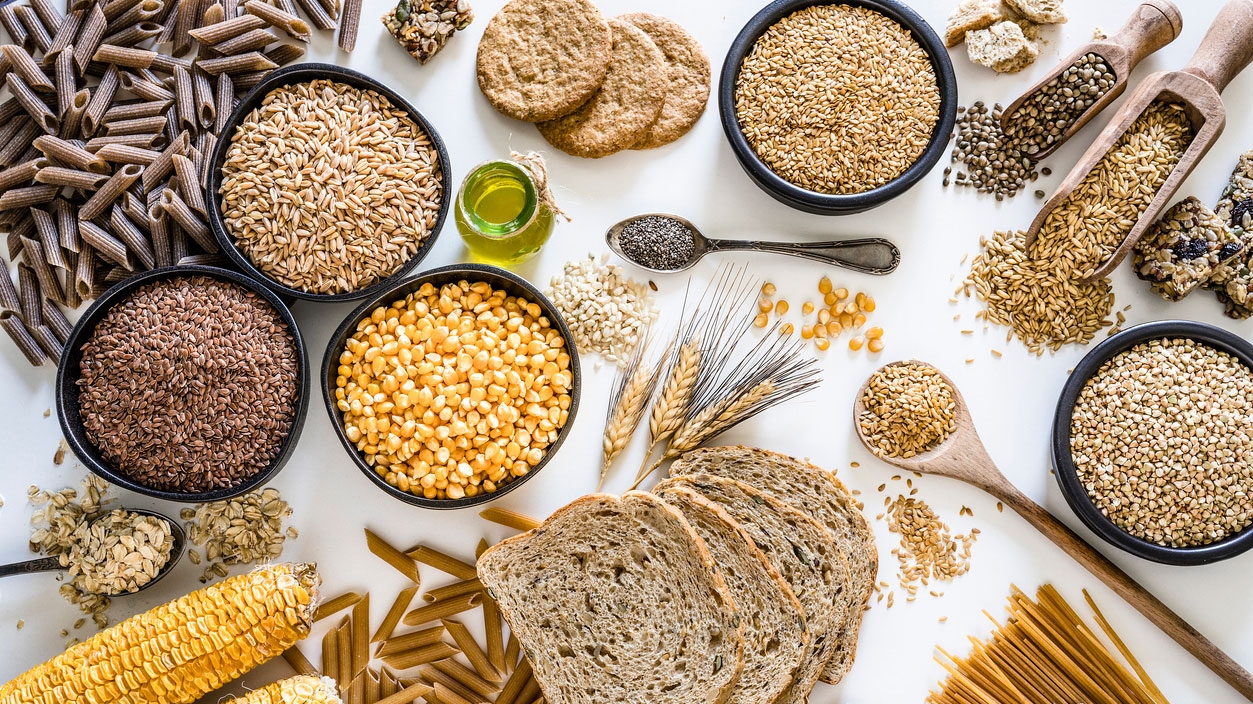
Whole grains, including barley, offer numerous health benefits, particularly heart health and cholesterol management.
Benefits of Barley:
Lowers LDL Cholesterol: Barley’s soluble fiber, beta-glucan, reduces bad cholesterol.
Improves Blood Lipid Profiles: Barley’s fiber and antioxidants enhance overall heart health.
Reduces Cardiovascular Risk: Regular barley consumption lowers the risk of heart disease.
Other Whole Grains and Their Benefits:
Quinoa: High in protein, fiber, and antioxidants, supports heart health.
Brown Rice: Rich in fiber, magnesium, and selenium, it lowers cholesterol.
Whole Wheat: High in fiber, vitamins, and minerals, supports healthy digestion.
Rye: Rich in fiber, antioxidants, and phytochemicals, reduces inflammation.
Buckwheat: High in protein, fiber, and antioxidants, supports heart health.
Nutritional Facts (1 cup cooked):
Barley: Fiber (6g), Protein (6g), Iron (10% DV)
Quinoa: Fiber (5g), Protein (8g), Iron (15% DV)
Brown Rice: Fiber (3g), Protein (5g), Magnesium (10% DV)
Whole Wheat: Fiber (4g), Protein (6g), Selenium (10% DV)
Rye: Fiber (4g), Protein (5g), Antioxidants (high)
Tips for Incorporating Whole Grains:
Replace refined grains: Choose whole grains for bread, pasta, and rice.
Add to salads: Mix entire grains with vegetables and lean proteins.
Use in soups: Add whole grains for fiber and nutrition.
Make whole grain breakfast: Start your day with whole grain cereals or oatmeal.
Beans: A Heart-Healthy, Cholesterol-Lowering Superfood

Beans are a nutrient-dense, versatile, and affordable legume that offers numerous health benefits, particularly for heart health and cholesterol management.
Benefits of Beans:
Lowers LDL Cholesterol: Beans’ soluble fiber, protein, and potassium reduce bad cholesterol.
Improves Blood Lipid Profiles: Beans’ fiber, antioxidants, and phytochemicals enhance overall heart health.
Reduces Cardiovascular Risk: Regular bean consumption lowers the risk of heart disease.
Supports Healthy Blood Pressure: Beans’ potassium content helps regulate blood pressure.
Types of Beans and Their Benefits:
Kidney Beans: High in fiber, protein, and antioxidants.
Black Beans: Rich in folate, magnesium, and potassium.
Chickpeas: High in protein, fiber, and antioxidants.
Navy Beans: Rich in fiber, protein, and potassium.
Pinto Beans: High in fiber, protein, and antioxidants.
Nutritional Facts (1 cup cooked):
Kidney Beans: Fiber (11g), Protein (15g), Potassium (20% DV)
Black Beans: Fiber (9g), Protein (15g), Folate (30% DV)
Chickpeas: Fiber (12g), Protein (15g), Antioxidants (high)
Navy Beans: Fiber (10g), Protein (15g), Potassium (20% DV)
Pinto Beans: Fiber (9g), Protein (15g), Antioxidants (high)
Tips for Incorporating Beans:
Add to soups: Mix beans with vegetables and lean proteins.
Make bean salads: Combine beans with vegetables and whole grains.
Use in place of meat: Beans are a great protein source.
Make bean-based dips: Hummus, guacamole, and salsa.
Eggplant: A Heart-Healthy, Cholesterol-Lowering Vegetable

Eggplant is a nutrient-dense, versatile vegetable with numerous health benefits, particularly for heart health and cholesterol management.
Benefits of Eggplant:
Lowers LDL Cholesterol: Eggplant’s soluble fiber, antioxidants, and phytochemicals reduce bad cholesterol.
Improves Blood Lipid Profiles: Eggplant’s fiber, potassium, and magnesium enhance overall heart health.
Reduces Cardiovascular Risk: Regular eggplant consumption lowers the risk of heart disease.
Supports Healthy Blood Pressure: Eggplant’s potassium content helps regulate blood pressure.
Nutritional Facts (1 cup cooked):
Fiber: 3g
Potassium: 10% DV
Magnesium: 10% DV
Antioxidants: High
Tips for Incorporating Eggplant:
Grill or roast: Bring out the eggplant’s natural sweetness.
Add to stir-fries: Mix eggplant with vegetables and lean proteins.
Make eggplant parmesan: A healthier alternative to traditional parmesan.
Use in place of meat: Eggplant is an excellent protein source.
Okra: A Heart-Healthy, Cholesterol-Lowering Vegetable

Okra is a nutrient-dense, versatile vegetable with numerous health benefits, particularly heart and cholesterol management.
Benefits of Okra:
Lowers LDL Cholesterol: Okra’s soluble fiber, antioxidants, and phytochemicals reduce bad cholesterol.
Improves Blood Lipid Profiles: Okra’s fiber, potassium, and magnesium enhance overall heart health.
Reduces Cardiovascular Risk: Regular okra consumption lowers the risk of heart disease.
Supports Healthy Blood Pressure: Okra’s potassium content helps regulate blood pressure.
Nutritional Facts (1 cup cooked):
Fiber: 4g
Potassium: 20% DV
Magnesium: 15% DV
Antioxidants: High
Tips for Incorporating Okra:
Add to soups: Mix okra with vegetables and lean proteins.
Make okra gumbo: A hearty, flavorful dish.
Grill or sauté: Bring out okra’s natural sweetness.
Use in place of thickening agents: Okra’s mucilage replaces thickening agents.
Apples: A Heart-Healthy Fruit for Cholesterol Reduction
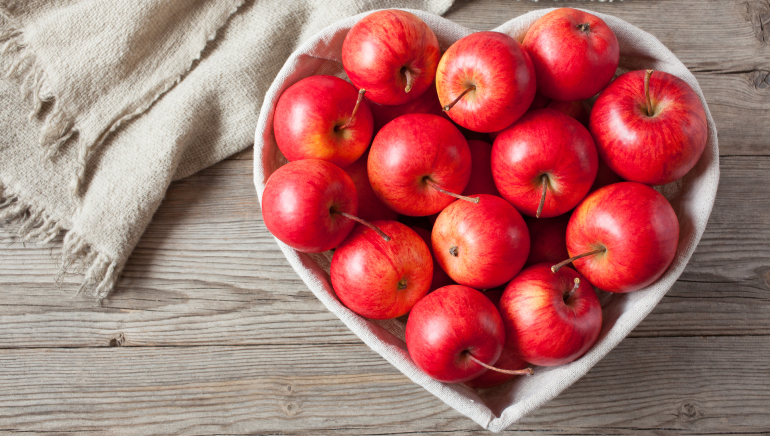
Apples are a nutrient-dense fruit that offers numerous health benefits, particularly heart health and cholesterol management.
Benefits of Apples:
Lowers LDL Cholesterol: Apple’s soluble fiber, antioxidants, and polyphenols reduce bad cholesterol.
Improves Blood Lipid Profiles: Apple’s fiber, potassium, and antioxidants enhance heart health.
Reduces Cardiovascular Risk: Regular apple consumption lowers the risk of heart disease.
Nutritional Facts (1 medium):
Fiber: 4g
Potassium: 5% DV
Antioxidants: High
Grapes: A Heart-Healthy Fruit for Cholesterol Reduction

Grapes are a nutrient-dense fruit that offers numerous health benefits, particularly heart health and cholesterol management.
Benefits of Grapes:
Lowers LDL Cholesterol: Grape’s soluble fiber, antioxidants, and polyphenols reduce bad cholesterol.
Improves Blood Lipid Profiles: Grape’s fiber, potassium, and antioxidants enhance overall heart health.
Reduces Cardiovascular Risk: Regular grape consumption lowers the risk of heart disease.
Nutritional Facts (1 cup):
Fiber: 1g
Potassium: 10% DV
Antioxidants: High
Strawberries: A Heart-Healthy Fruit for Cholesterol Reduction

Strawberries are a nutrient-dense fruit with numerous health benefits, particularly heart health and cholesterol management.
Benefits of Strawberries:
Lowers LDL Cholesterol: Strawberry’s soluble fiber, antioxidants, and polyphenols reduce bad cholesterol.
Improves Blood Lipid Profiles: Strawberry fiber, potassium, and antioxidants enhance overall heart health.
Reduces Cardiovascular Risk: Regular strawberry consumption lowers the risk of heart disease.
Nutritional Facts (1 cup):
Fiber: 3g
Potassium: 10% DV
Antioxidants: High
the risk of heart disease.
Nutritional Facts (1 cup):
1. Fiber: 3g
2. Potassium: 10% DV
3. Antioxidants: High
Citrus Fruits: A Heart-Healthy Fruit for Cholesterol Reduction
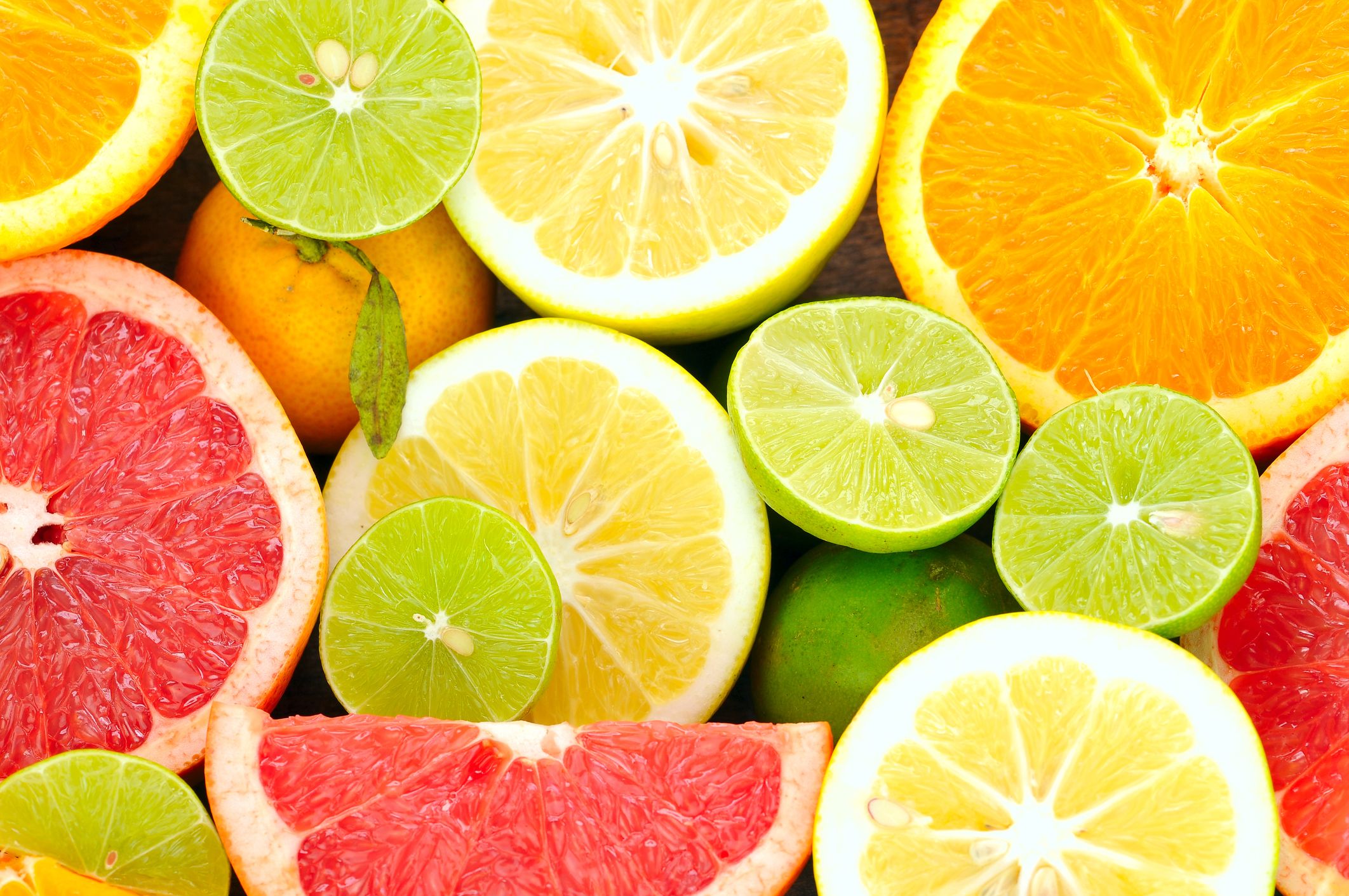
Citrus fruits, including oranges, lemons, and grapefruits, offer numerous health benefits, particularly for heart health and cholesterol management.
Benefits of Citrus Fruits:
Lowers LDL Cholesterol: Citrus fruit’s soluble fiber, antioxidants, and polyphenols reduce bad cholesterol.
Improves Blood Lipid Profiles: Citrus fruit’s fiber, potassium, and antioxidants enhance overall heart health.
Reduces Cardiovascular Risk: Regular citrus fruit consumption lowers the risk of heart disease.
Nutritional Facts (1 medium):
Fiber: 2-3g
Potassium: 10-15% DV
Antioxidants: High
Foods Fortified with Sterols and Stanols: A Cholesterol-Lowering Strategy

Plant sterols and stanols are natural substances found in small amounts in various fruits, vegetables, and nuts. Fortified foods with these nutrients can help lower cholesterol levels.
Benefits of Sterols and Stanols:
Lowers LDL Cholesterol: Sterols and stanols reduce bad cholesterol absorption.
Improves Blood Lipid Profiles: Sterols and stanols enhance overall heart health.
Reduces Cardiovascular Risk: Regular consumption lowers the risk of heart disease.
Foods Fortified with Sterols and Stanols:
Margarine and Spreads: Many brands contain sterols and stanols.
Butter and Dairy Products: Some brands offer sterol and stanol-fortified options.
Orange Juice and Other Beverages: Some brands contain sterols and stanols.
Cereals and Granola: Some breakfast cereals and granola products are fortified.
Energy Bars and Supplements: Some products contain sterols and stanols.
Nutritional Facts (varies by product):
Sterols: 0.5-2g per serving
Stanols: 0.5-2g per serving
Cholesterol Lowering Effect: 7-12% reduction in LDL cholesterol
Tips for Incorporating Fortified Foods:
Choose fortified products: Select margarines, spreads, and dairy products with sterols and stanols.
Consume recommended amounts: Follow product labels for optimal cholesterol-lowering benefits.
Combine with other strategies: Pair fortified foods with a balanced diet and regular exercise.
Soy: A Cholesterol-Lowering, Heart-Healthy Protein Source
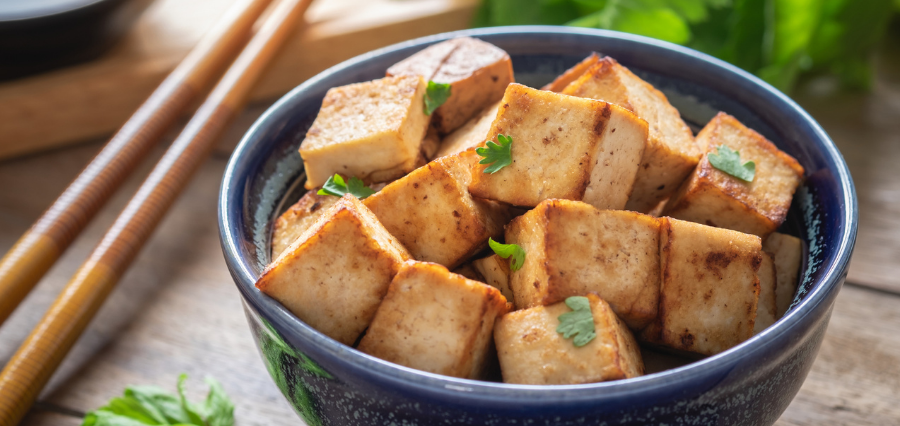
Soy is a nutrient-dense, plant-based protein source that offers numerous health benefits, particularly for heart health and cholesterol management.
Benefits of Soy:
Lowers LDL Cholesterol: Soy’s protein, fiber, and isoflavones reduce bad cholesterol.
Improves Blood Lipid Profiles: Soy’s protein, fiber, and healthy fats enhance overall heart health.
Reduces Cardiovascular Risk: Regular soy consumption lowers the risk of heart disease.
Supports Bone Health: Soy’s isoflavones and calcium support bone density.
Soy Products:
Tofu: A versatile, protein-rich soy product.
Tempeh: A fermented soybean product with probiotics.
Edamame: Boiled or steamed soybeans.
Soy Milk: A plant-based milk alternative.
Soy Protein Powder: A convenient supplement.
Nutritional Facts (varies by product):
Protein: 10-20g per serving
Fiber: 2-5g per serving
Isoflavones: 20-50mg per serving
Calcium: 10-20% DV
Tips for Incorporating Soy:
Start with small amounts: Gradually increase soy intake.
Choose whole soy products: Opt for whole soybeans, tofu, or tempeh.
Add soy to meals with vegetables, whole grains, and lean proteins.
Select fortified products: Look for added calcium and vitamins.
Conclusion
Lower your cholesterol with these delicious and nutritious foods. Incorporating LDL-lowering foods into your diet is a straightforward yet impactful step toward enhancing your heart health. By making mindful choices and relishing these delightful options, you can significantly diminish your risk of cardiovascular disease. Remember, a well-rounded diet, regular physical activity, and seeking advice from a healthcare professional are vital components of a healthy lifestyle. Take control of your cholesterol levels with our comprehensive guide to lower-cholesterol foods. So, embark on this flavorful journey to a healthier you!

